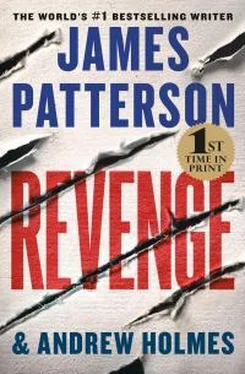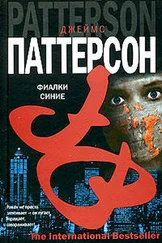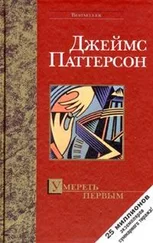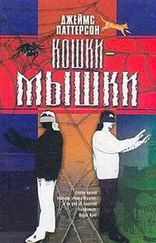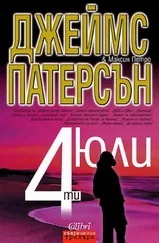He had a job to do.
CHAPTER 54
ALTHOUGH GRANDFATHER LIKED to watch his films from the machine shop every now and then, in the afternoon he mostly preferred to watch soap operas, especially the Australian ones: Neighbours and Home and Away were his favorites.
Around him that afternoon there had been a great deal of activity. He’d heard talk of a snatch, some woman apparently. And dimly, amidst a general irritation at the constant noise that interrupted his viewing, he had wondered if his skills might be called upon.
It had been a long time since he’d worked on a woman. It would be good to get the chance. Still, he had no intention of broaching the subject with his idiot grandson Dmitry. That boy had no idea of the old ways. To him the camps and Gulag were something ripped from the history books, as distant and remote to him as Jack the Ripper was to the East Enders of London. Dmitry’s idea of the relationship between fear and power was vague and received. He could have no concept of terror’s potent hold because he had never experienced it for himself. Dmitry believed that his old grandfather and even his father were men out of time; to him their means of keeping order were an anachronism, embarrassing like coarse manners.
Neither did he know of the sheer pleasure one could experience by inflicting such intense pain. That in itself was a form of power. Grandfather saw how Dmitry and his ilk would react. Men who carried guns and used their fists with impunity, men of violence, would wince and pale when he produced his instruments. His art was too much even for them. He took them to places they’d rather not go, and doing that conferred upon him an even greater authority.
And of course they thought he was stupid because that’s what the young think. They couldn’t see past the trembling hands, defective hearing, and battered eyesight. They interpreted a slowing of thought as a decline in intelligence. They paid lip service to the idea of experience, but that’s all it was because secretly they believed all their bright ideas were new ones.
Think of me as a dinosaur all you want, Dmitry, but this organization was built upon the rusted blade of my saw. Relic I might be, totem I definitely am.
Later on, things began to calm down. There was less noise. Fewer folk coming and going. Once more Grandfather was able to concentrate on the television. He had increased the volume to a near-ear-splitting level as a form of protest, but now he reached for the control and returned it to its normal setting.
Still, he thought. It would have been interesting to make this woman’s acquaintance. What fun he might have had.
And so his spirits rose when one of the men came to him shortly after dark, entering the front room tentatively, as they all did, bowing and showing his respect, as they all did, and said, “I have been asked if you would like to accompany me to the machine shop, Ded .”
Grandfather enjoyed the effect his smile had on these underlings. “Dmitry?” he asked.
“No, Ded . It is Mrs. Kraviz who asks if you would come to the machine shop. She has a task she thinks you might enjoy. She has asked me to inform you that it is her gift to you, as a sign of respect.”
Now, this was a lot better, thought Grandfather. Dmitry’s wife Karen was a Londoner and spoke like cor blimey, guv’nor , but she had a toughness Grandfather admired.
Like most of them in the organization, he detested the Regans and longed for the day the merger would become a takeover. But unlike his grandson he knew there were things they could learn from the old-fashioned gangsters. The Regans knew how to keep their house in order. The Regans had gone down the path that Dmitry wanted to take. They had seen the error of their ways. They had corrected their route.
“Get my coat,” he said, already looking forward to the task ahead. “Oh, and I will also need my instruments, I take it?”
“Mrs. Kraviz has asked me to tell you that your instruments are waiting for you,” said the visitor.
“Excellent,” drawled Grandfather. “Excellent.”
CHAPTER 55
SHELLEY PUSHED THE curtain aside, looked out of his window, and saw the car in the road. He pulled on a coat, went out, and tapped on the car window. It slid down.
“Hello, mate,” he said.
The guy inside, a plainclothes if ever Shelley had seen one, said, “All right, mate.”
“What are you doing here, then?” he asked. “In a quiet cul-de-sac like this.”
“Waiting,” said the cop defensively. “No law against it, is there?”
“Well, you should know,” jibed Shelley.
The guy blinked but said nothing.
“It’s someone who lives on this street, is it, that you’re waiting for?” pressed Shelley.
The guy nodded.
“I see. Well, you need a residents’ parking permit to stop here,” Shelley told him primly. “If you don’t get one, I’m afraid I’m going to have to call the police.”
For a moment, he wondered if the guy was simply going to drop the charade. But, “Well, you’d best do that then,” the driver replied.
“Tell you what,” said Shelley. “I’m just going to be in my room watching a box set on my laptop. There’s my car”—he pointed at his Saab. “I won’t call the cops if you keep an eye on it for me.”
The surveillance guy clenched his jaw, looking even more severely pissed off than he had before. Satisfied that he’d done a good job of winding him up, Shelley disappeared back inside.
In the house, he moved quickly into the kitchen, minuscule compared to the Drakes’ snooker-hall-sized version, but home. There were lots of drawers in the kitchen, but only one that he and Lucy called “the kitchen drawer,” and he went to it now, yanking it open and raking through the contents until he found what he wanted: a timer, the type you plug into a wall to control appliances.
Moving to the bedroom, he set the timer and switched on the light. It was the oldest trick in the book, the kind of thing used to deter burglars in 1982, but he was hoping it would satisfy Philip Marlowe outside.
Then, on the off-chance that his friend outside had the means of hacking into his internet, he started something streaming on the iPlayer.
Now then . 10 p.m. That gave him two hours until the exchange. He dressed: jeans, T-shirt, sweatshirt, bomber jacket. Into the waistband of his jeans he clipped the holster carrying his SIG then grabbed his phone and, lastly, the spare keys to Lucy’s Mini.
Next he returned downstairs, checked out the window, and then, very quietly, let himself out the back door.
He stopped to listen, savoring the quiet—a low, humming, thrumming city kind of quiet—and then climbed the wall that separated their yard from the cemetery behind. He dropped onto the soft ground and made his way through gravestones silhouetted against the night like rotting teeth, until he reached the entrance gate, locked and chained.
The climb was short work. A second later he was in the street, satisfied nobody had seen him. He pulled his cap out of his pocket and fixed it on his head, feeling human again. He found a minicab, “Hampstead, please,” and about forty minutes later he was dropped off at the health spa. There he saw the aftermath of Lucy’s gun battle: boarded-up windows, bullet holes in the car park surface pinpointed by forensic marker spray—and Lucy’s car.
He checked there was no one around, and that he hadn’t been followed, then opened up and climbed inside.
The scent of her stopped him for a moment. Lucy smell. And for a second he longed to be with her, sitting by her bedside or preferably at home with her, eating dinner or in front of the TV, even bloody “brainstorming” to find new work if that was what she wanted.
Читать дальше
